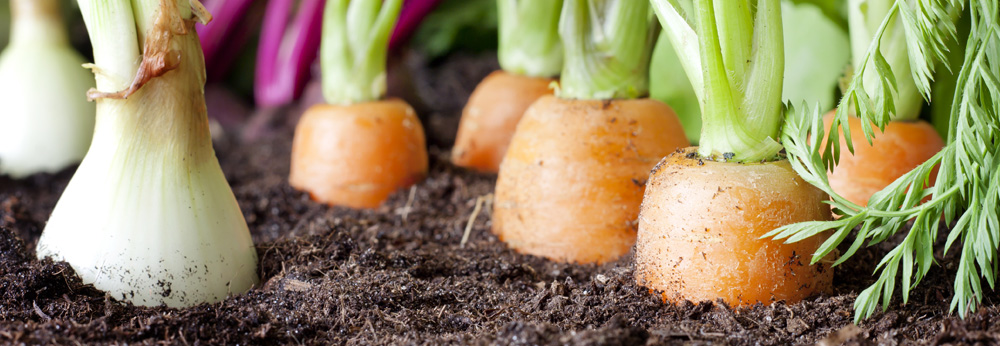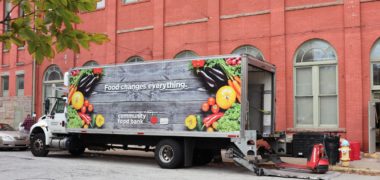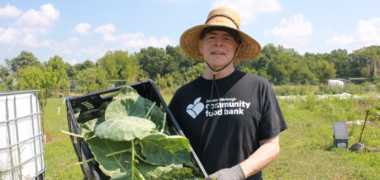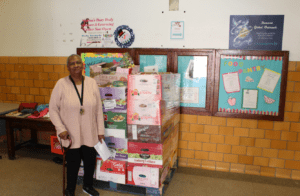Our mission is to feed people in need and mobilize our community to eliminate hunger.
In 1998, Greater Pittsburgh Community Food Bank made a sustainability commitment when it broke ground on a brand new building and entered the LEED Pilot program, earning its certification in 2000.
The Food Bank’s service to the community has evolved over the years, but sustainability has remained at the core. The organization uses an efficient route design for its trucks, all of which leave the warehouse with a full load of deliveries, then return full of donations so they are never on the road empty.








